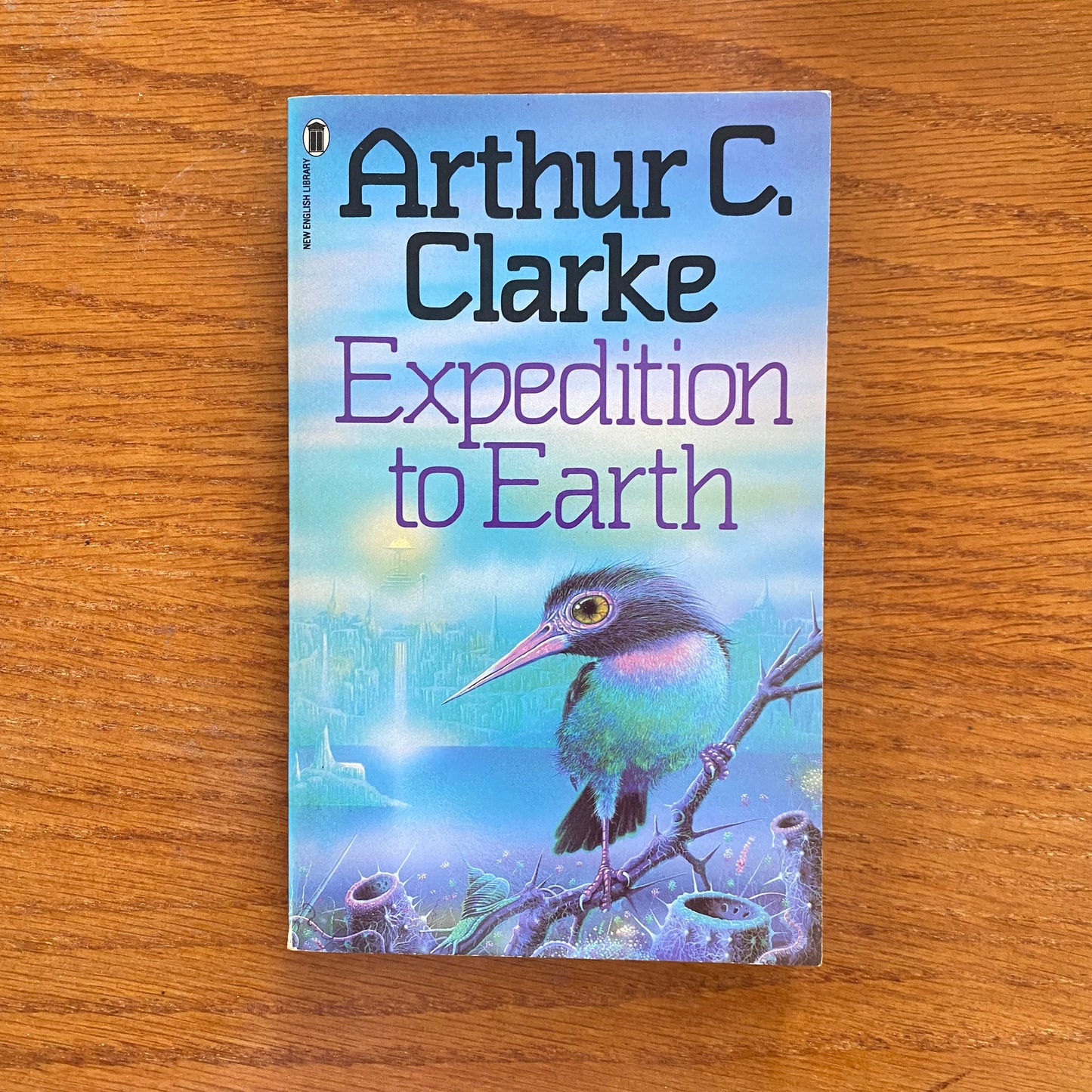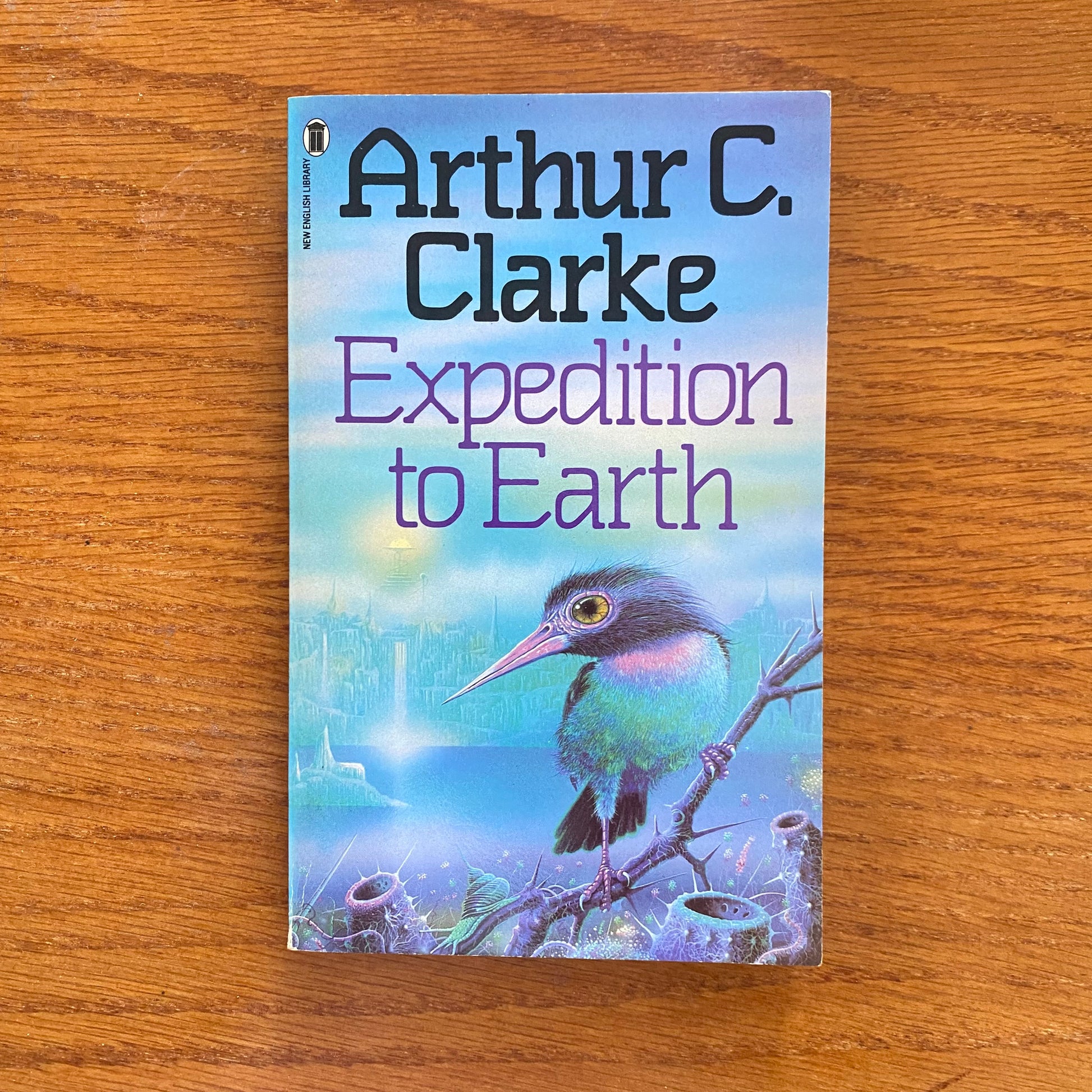Rumorbooks
Arthur C. Clarke - Expedition To Earth
Arthur C. Clarke - Expedition To Earth
Couldn't load pickup availability
"Expedition to Earth" by Arthur C. Clarke is a masterful collection of eleven short stories, first published in 1953, that showcase Clarke's unique ability to blend scientific speculation with deep philosophical inquiry. Each narrative within the anthology presents a distinct exploration of human nature, technological advancement, and the broader universe, reflecting Clarke's visionary foresight and contemplative style.
The collection opens with "Second Dawn," a thought-provoking tale set on a distant planet inhabited by two species: one technologically advanced but physically limited, and the other physically adept but intellectually primitive. Clarke uses this setting to delve into themes of intelligence, evolution, and the transformative impact of knowledge, raising questions about the ethical responsibilities of more advanced beings towards their less advanced counterparts.
"If I Forget Thee, Oh Earth" is a poignant story about a young boy living in a lunar colony who is taken by his father to view the desolate Earth. This narrative highlights the themes of loss, hope, and the necessity of remembering past mistakes to forge a better future. It underscores the fragile nature of our planet and the enduring resilience of the human spirit.
In "Breaking Strain," Clarke presents a gripping tale of survival set aboard a space freighter. After a catastrophic failure of their life-support system, two astronauts face a harrowing struggle for life. The story examines human endurance, the moral complexities of survival, and the psychological strain of facing seemingly insurmountable odds.
"History Lesson" offers a fascinating perspective on the aftermath of human civilization. In this story, an alien species from Venus discovers the remnants of a long-extinct human race. Through their misinterpretation of human artifacts, Clarke presents a sobering commentary on the transient nature of civilizations and the potential for misunderstanding across different cultures and eras.
"The Sentinel," perhaps the most famous story in the collection, serves as the inspiration for Clarke's later work, "2001: A Space Odyssey." It tells the story of a mysterious alien artifact found on the Moon, sparking profound questions about extraterrestrial life and humanity's place in the universe. The narrative's contemplative tone and visionary scope exemplify Clarke's ability to evoke wonder and introspection.
In "Superiority," Clarke critiques the arms race and technological supremacy in warfare. The story follows the downfall of a military force that relies excessively on advanced technology, losing sight of practical and strategic considerations. Through this narrative, Clarke warns of the dangers of overreliance on technology and the potential hubris of technological superiority.
"Encounter in the Dawn" explores the encounter between primitive humans and an advanced alien race. This story reflects Clarke's fascination with first contact scenarios and the profound impact of superior technology on less advanced civilizations. It raises questions about cultural exchange, ethical responsibilities, and the potential consequences of such encounters.
Throughout "Expedition to Earth," Clarke's stories resonate with his characteristic blend of hard science fiction and philosophical depth. Each narrative offers a unique lens through which to view the complexities of human nature, the potential of technological advancement, and the mysteries of the cosmos. The collection stands as a testament to Clarke's enduring legacy as a visionary storyteller and a profound thinker in the realm of science fiction.
Share




